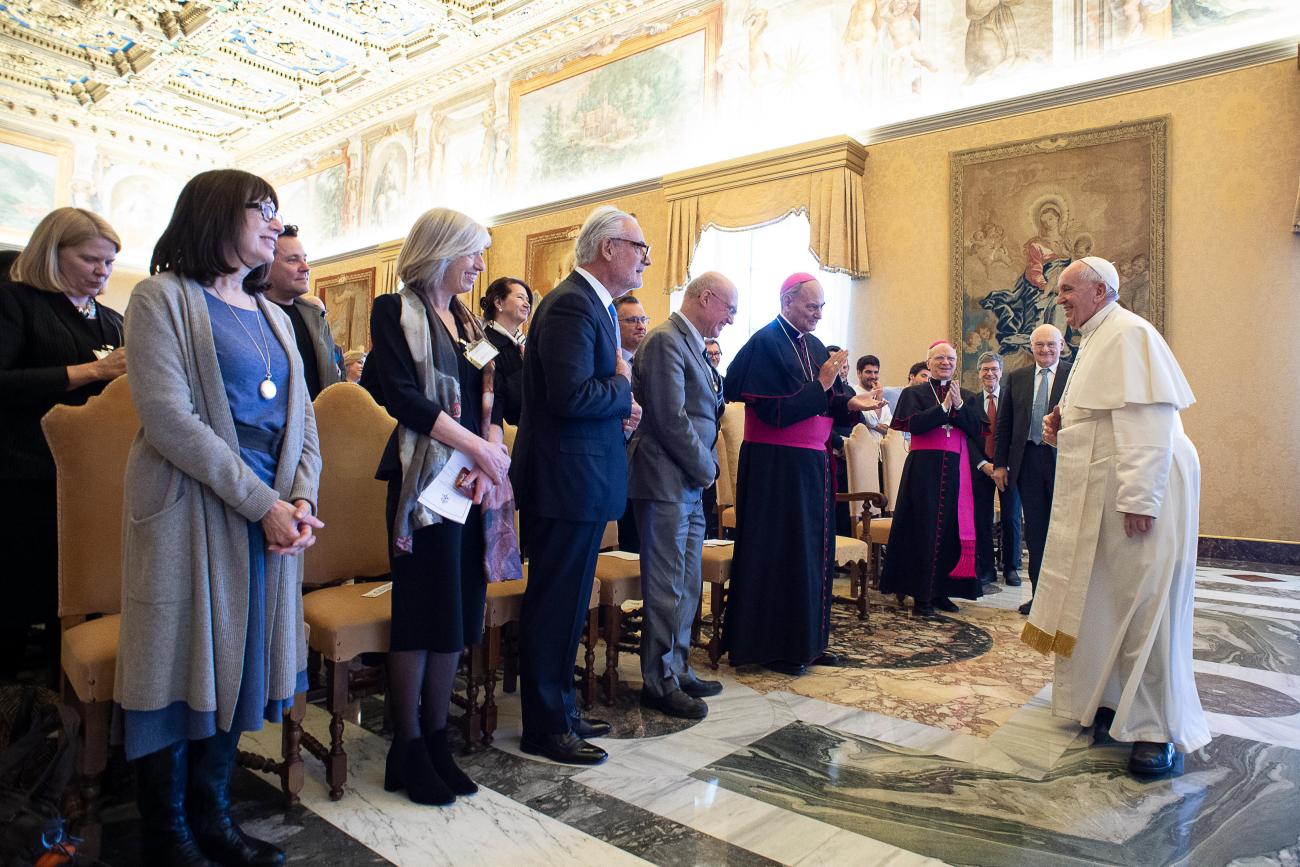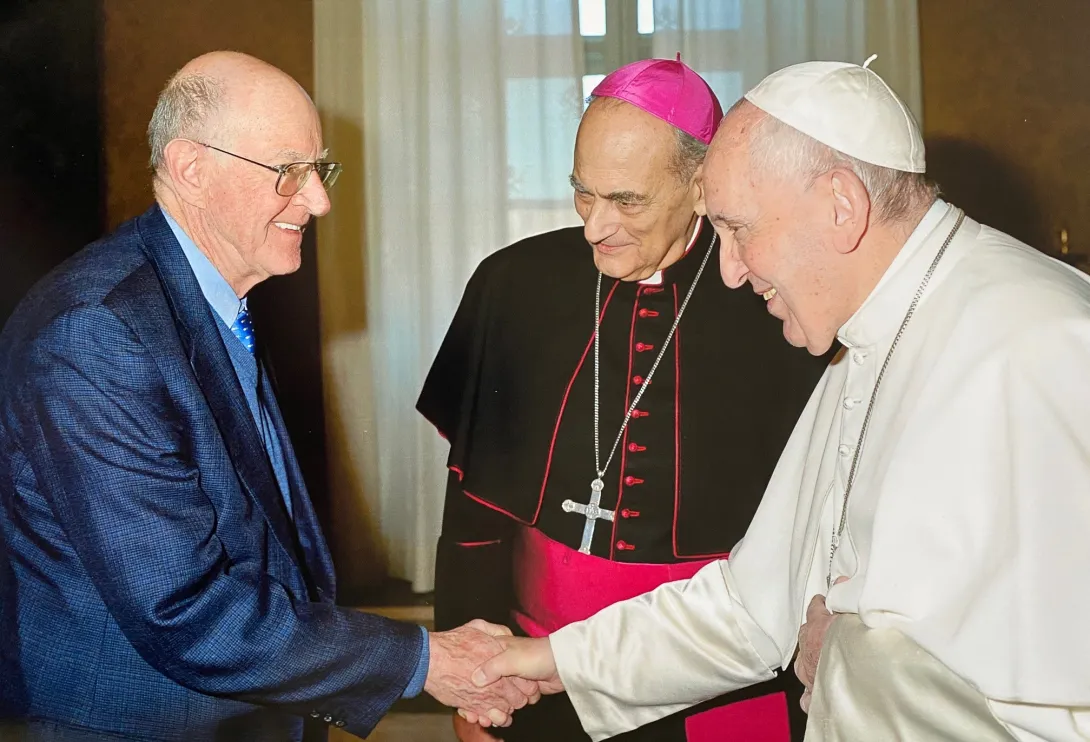
With a visit to the Vatican, Stanford education professors play a part in crafting a new global initiative
Three Stanford education professors helped shape a new global education initiative that Pope Francis introduced this week. The task brought them to Vatican City earlier this year for a research symposium that included an audience with the pope himself.
In February, just weeks before Italy confirmed its first deaths from the novel coronavirus and went on to place the entire nation under quarantine, Brigid Barron, Anne Colby and William Damon journeyed to Rome for a two-day meeting to present their work.
The gathering, held in Vatican City at the headquarters of the Pontifical Academy of Social Sciences, was convened to help organizers draft the Global Compact on Education, a document defining guiding principles for education from preschool through higher ed. Similar in spirit to the Universal Declaration of Human Rights adopted by the United Nations General Assembly in 1948, the pact puts forth a vision and a set of values meant to transcend geographic, economic, sociopolitical and religious differences.
The invitation “was an unexpected and very welcome surprise,” said Damon, a professor at the Graduate School of Education (GSE) and director of the Stanford Center on Adolescence. “Pope Francis has such a wonderful reputation and so much worldwide influence—we were very eager to contribute to this.”
Damon presented with Colby, an adjunct professor at the GSE, about their research into the development of purpose in young people. Barron, a GSE professor and co-lead of the TELOS Initiative at Stanford, shared her work on how technology can provide more equitable access to learning opportunities, both in and out of school. “It was an honor to participate in a workshop that centered educational equity as core to the future of humanity,” Barron said.
An audience with the pope

"I felt very humbled to be in his presence," said Damon (left), one of three Stanford education professors who traveled to the Vatican to present their work in February.
The research meeting included an audience with Pope Francis, an Argentine native, who talked to the scholars about the need for “a broad educational covenant aimed at forming mature persons capable of mending the fabric of human relationships and creating a more fraternal world.” He called for education that combines “the language of the head with the language of the heart,” urging cooperation on the part of families, schools and social, cultural and religious institutions.
The pope also paid homage to teachers, whom he characterized as “artisans” shaping the generations to come and pressed for their work to be “acknowledged and supported by every possible means.”
While the pope delivered the speech in Spanish, attendees were given a written copy in English—but that version didn’t account for some spontaneous additions.
“He extemporized a lot, which was very charming,” said Damon. “My Spanish is a bit shaky, so I probably caught only about two-thirds of his off-the-cuff remarks.”
Damon particularly enjoyed one of the pontiff’s impromptu asides: “He said that the real test of a good school is whether it produces any poets.”
The scholars also took advantage of the opportunity to each shake hands with the pope, a moment documented by an official photographer and perhaps forever relegated to the pre-COVID era.
Reimagining the future of learning
Although situated in one of the world’s great religious settings, the research discussions were largely secular, the scholars said. Presenters discussed innovations in teaching and the importance of “whole child” education that includes attention to cognitive skills, literacy, social-emotional learning, motivation and purpose. Pope Francis directed the scholars to specify the educational tools needed “to lay the foundations for a more humane, healthy, equitable and prosperous society.”
His appeal for greater collaboration between schools, families and social and cultural institutions is particularly significant now as the pandemic has disrupted educational systems around the world, Barron said. “The spirit of cooperation and generosity he calls for will be absolutely essential as we work to reimagine the future of learning.”
“I felt very humbled to be in his presence,” said Damon. “He’s a force for good in the world, and we were honored to contribute to this.”
Pope Francis announced the Global Compact on Education live on Oct. 15 via the Vatican News YouTube channel. See the website of the Global Compact for more details.
Faculty mentioned in this article: William Damon , Brigid Barron



